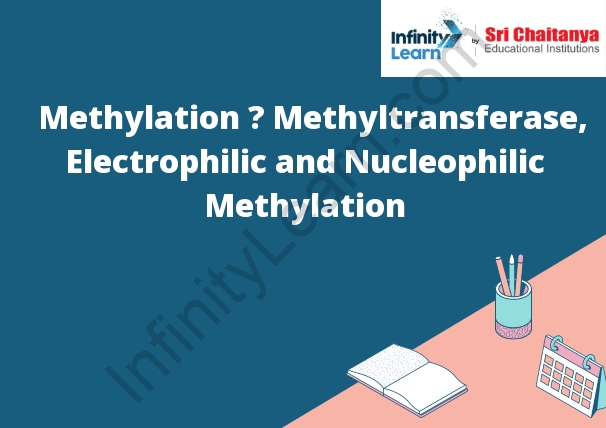Table of Contents
What is Methylation? ;
Methylation is a biochemical process that is essential for life. This process involves the addition of a methyl group (CH3) to a molecule. Methylation plays a role in a variety of biological processes, including DNA replication, gene expression, and cell signaling.

Electrophilic Methylation
The electrophilic methylation of an alkene proceeds through the attack of a methyl group on the double bond. The methyl group is electron-rich, and the alkene is electron-poor. The methylation reaction can be catalyzed by a variety of different methylating agents, including methyl iodide, dimethyl sulfate, and methyl triflate. The methylation reaction typically proceeds through a S N 2 mechanism.
Nucleophilic Methylation
Nucleophilic methylation is the process of adding a methyl group to a molecule. A methyl group is a small organic molecule that consists of a carbon atom bonded to three hydrogen atoms. In order to add a methyl group to a molecule, a nucleophile is needed. A nucleophile is a molecule that is attracted to electrons and has a negative charge. The most common nucleophile used in nucleophilic methylation is the hydroxide ion, which is formed by the dissociation of water. When the hydroxide ion attacks the carbon atom in a methyl group, it forms a methylated product and a salt. The salt is a compound formed when an acid and a base react.
The Eschweiler-Clarke Reaction
The eschweiler-clarke reaction is a synthetic organic reaction used to form carbon-carbon bonds. The reaction begins with the formation of an aryl diazonium ion, which is then attacked by a sulfur ylide. The ylide forms a six-membered ring with the carbon atom from the aryl diazonium ion, and the nitrogen atom from the sulfur ylide. This forms an imine, which is then hydrolyzed to form the desired carbon-carbon bond.
DNA Methylation and its Significance in Gene Regulation
DNA methylation is the addition of a methyl group (CH 3 ) to the fifth carbon atom of a cytosine nucleotide in a DNA strand. This process is catalyzed by DNA methyltransferases (DNMTs) and is a form of epigenetic modification.
Epigenetic modifications are heritable alterations in gene expression that are not due to changes in the DNA sequence. DNA methylation is the most common form of epigenetic modification, and it plays an important role in gene regulation.
The addition of a methyl group to a DNA strand can silence a gene by blocking the binding of transcription factors to the DNA, or it can activate a gene by promoting the binding of transcription factors to the DNA.
DNA methylation is also involved in the regulation of DNA replication and DNA repair.
Methanogenesis
Methanogenesis is the process by which methane is produced. Methane is a greenhouse gas that is about 25 times more potent than carbon dioxide. Methane is produced in two ways: biogenic and thermogenic.
Biogenic methane is produced by microorganisms in the soil, in water, and in the gut of animals.
Thermogenic methane is produced by the decomposition of organic matter at high temperatures.
What is Methyltransferase?
Methyltransferase is an enzyme that catalyzes the transfer of a methyl group from one molecule to another.
What Are Methanogens?
Methanogens are bacteria that produce methane gas as a byproduct of their metabolism. These bacteria can be found in a variety of habitats, including water, soil, and the gut of animals. Methane gas is a greenhouse gas that contributes to climate change, so methanogens are of concern to environmental scientists.
Did You Know?
The average lifespan of a red blood cell is about 120 days.







